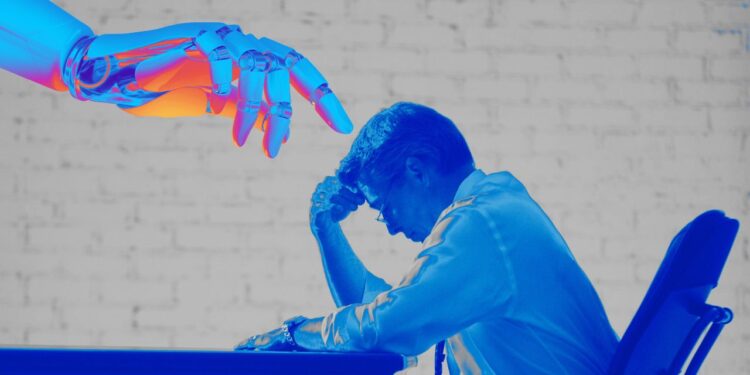What’s going on:
The rapid advancement of artificial intelligence (AI) in the workplace is causing some anxiety among employees, with many fearing that their skills could become obsolete in the near future. Several surveys have revealed that employees with these fears believe their employers should play a role in reskilling them to ensure they aren’t easily replaced by AI, according to WorkLife.
One survey by analytics firm Visier, revealed that an overwhelming majority (86%) of participants spanning across the US, Canada, the UK, and Germany agree that employers must assume some level of responsibility in reskilling employees in order to help protect them from the threat of automation — with over half feeling it should be their sole duty. Despite this, there is a notable skills gap in AI proficiency. A survey by Skillsoft reveals that 70% of companies are struggling to hire qualified talent, and about 60% of executives “ranked their teams’ AI skills as low or somewhat low,” according to WorkLife.
Why it matters:
The rise of AI in the workplace is a critical issue as it directly impacts job security and the future of work. Employees’ fear of becoming obsolete due to AI advancements can lead to decreased morale and productivity. Furthermore, the existing skills gap indicates a need for more education and training on AI tools. This situation underscores the importance of employers taking responsibility for reskilling their workforce to adapt to the changing technological landscape.
How it’ll impact the future:
The integration of AI into the workplace will inevitably reshape the future of work. Companies that embrace AI and invest in upskilling their employees will likely gain a competitive edge. However, those that fail to address the skills gap may struggle to keep pace with technological advancements. The future workforce will need to be adaptable and open to learning new skills, particularly in AI, to stay relevant and competitive.
The future workforce will need to be proficient in AI and other emerging technologies. As AI continues to evolve, employees will need to continually update their skills to stay relevant. This shift could lead to a greater emphasis on lifelong learning and continuous professional development. Employers will also need to take a proactive role in providing training and resources to help their employees adapt to these changes.
Broadly speaking, the rise of AI will likely lead to a significant transformation of the workforce. While it may create new opportunities, it could also lead to job displacement for those who cannot or do not adapt to the new technological requirements. This change underscores the importance of communication, education, and strategic planning in helping the workforce navigate the AI revolution.














